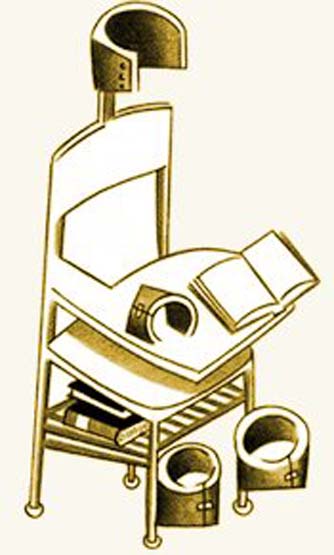
I first knew him as the effervescent policy and political activist who worked with educational researchers Robert Slavin and Nancy Madden in the creation of the nationally renowned "Success for All" program for elementary and middle school students. Slavin and Madden had the idea. To their total surprise, Hettleman walked in one day to announce he had gotten the money budgeted, so they had better get started.
What I didn't know was that along with all of his other activities, he has been representing, for free, more than 200 special-education students in Maryland seeking better services. He thinks teaching students with disabilities has been captured by myths. His is not an establishment view, but so well-informed and compelling it could provide the key to addressing one of public education's toughest and most enduring problems.
Hettleman does not believe that most students in special education are truly disabled. Fewer than 20 percent, he says, have clearly defined conditions, such as Down syndrome, severe autism, or visual and hearing impairments. The rest, he says, are struggling learners, especially in reading. Their difficulties were sadly not identified and addressed in the crucial early grades.
So as a last resort, he says, they "are dumped into special education. Reading experts estimate that, in the absence of timely interventions, between 50 and 75 percent of struggling readers wind up unnecessarily in special education."
Hettleman's decades of experience with what he calls truly disabled students has led him to conclude that their academic and life skills instruction could be significantly improved, particularly because the bad old warehousing or exclusion of such kids has been mostly done away with.
On the other hand, special-education services for those mislabeled as disabled "could hardly be worse," he told me. "Students don't catch up. They almost invariably fall further behind. All the while, they are segregated to varying degrees from peers and suffer stigma."
When they are mainstreamed in regular classes, he says, they rarely receive the instruction that research says would help most. It is expensive and many school districts are uncomfortable with it.
What Hettleman finds most maddening is something I have often heard from parents of children with disabilities.
He says school officials are reluctant to be candid about how far behind special-education students are. The gold standard of education statistics, the National Assessment of Educational Progress, reported in 2017 that only 11 percent of fourth-graders and 7 percent of eighth-graders in special education were proficient in reading. The parents he has worked with and the ones I know often aren't told those scores.
"Rather, school systems conceal actual performance through grade inflation; social promotion from grade to grade, though the student is not close to meeting grade-level standards; bogus graduation diplomas; and other means," he says.
Hettleman's belief that evidence-based teaching methods would make a difference for all struggling readers assumes that districts would hire and train the teachers needed to make that happen. That is very optimistic. But he is right that the special-education label tends to lower expectations. Schools in the same way often don't try as hard to raise the achievement of low-income students because it is assumed that without college-educated parents, they aren't up to it.
He remembers the ridicule Arne Duncan, the former U.S. education secretary, received for saying "no belief is more damaging in education than the misperception that children with disabilities cannot really and shouldn't be challenged to reach the same high standards as all children."
Hettleman urges that special education "be reinvented so it only serves students with severe, medically defined disabilities." That would be very difficult to make happen even if communities were overloaded with imaginative politicians like him. But special education in its current form is not working well, so why not try something different?


 Contact The Editor
Contact The Editor
 Articles By This Author
Articles By This Author